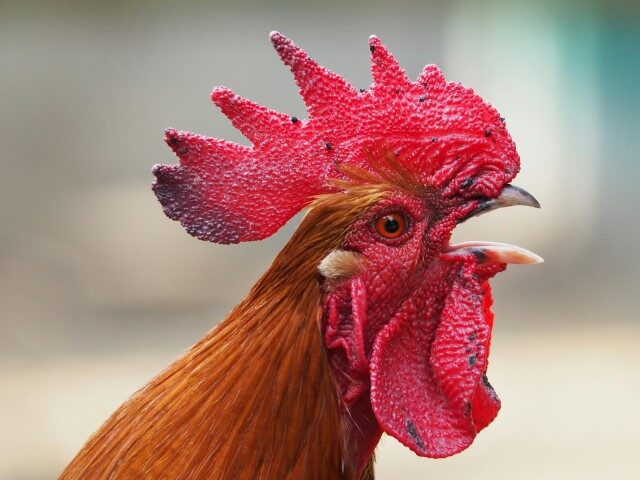Three Colorado farm workers have tested positive for bird flu in preliminary results, state health officials announced Friday.
The three individuals were all working at a commercial egg layer operation in northeast Colorado when they began experiencing “mild symptoms,” including pink eye and “common” indications of a respiratory infection, the Colorado Department of Public Health and Environment (CDPHE) said in a press release on July 12.
The CDPHE said they “identified three presumptive positive cases of avian influenza” in the three workers, who were culling poultry at a farm that had been impacted by an avian flu outbreak amongst birds.
None of the individuals have been hospitalized, the department noted.
Samples have been sent to the Centers for Disease Control and Prevention (CDC) for “confirmatory testing.”
While health officials initially said that the bird flu outbreak was not harmful to humans, virologists are now sounding the alarm that it actually could be more dangerous to humans than previously believed.
Former CDC director Dr. Robert Redfield said, “It’s not a question of if, it’s more of a question of when” a bird flu pandemic will occur with “significant mortality” in humans in a recent interview with NewsNation:
The highly contagious virus, also known as the H5N1 virus, has “probably somewhere between 25 and 50 percent mortality” in humans, Redfield said.
The largest U.S. producer of fresh eggs, Cal-Maine Foods, Inc., had to temporarily halt production at its Texas plant after detecting bird flu in chickens in April, Breitbart News reported.
An estimated 1.6 million laying hens and 337,000 pullets at the Parmer County facility were destroyed after being infected, the company said in a statement.
The virus then jumped to mammals, with the influenza being detected in dozens of cattle across the country before impacting some human dairy farm workers, according to the CDC.
According to the U.S. Department of Agriculture (USDA), 152 cattle herds across the nation have experienced outbreaks so far this year.
The first human to have died from the avian virus was a 59-year-old Mexican man, the World Health Organization (WHO) confirmed.
While the CDC recommended that people “avoid close, long, or unprotected exposures to sick or dead animals” like cows and poultry in a May press release announcing the infection of a Michigan dairy farm worker, the family of the man who died said he had no history of exposure to animals.
The Biden administration announced last week that the U.S. Department of Health and Human Services (HHS) will provide $176 million to Moderna to create an “mRNA-based pandemic influenza vaccine,” with health officials citing “lessons learned during the COVID-19 pandemic.”
While Moderna is already in the beginning stages of making a bird flu vaccine — which uses the same mRNA technology as the coronavirus vaccinations — HHS officials said the new funds will aid the company “in ensuring the establishment of additional pandemic influenza vaccine response capability.”

COMMENTS
Please let us know if you're having issues with commenting.